I am re-running my most recent Hitchcock review to support For the Love of Film: The Film Preservation Blogathon III, hosted by Ferdy on Films, the Self-Styled Siren and This Island Rod.
 Working with National Film Preservation Foundation (NFPF), this blogathon aims to bring “The White Shadow,” a 1923 melodrama, to a wider audience. Directed by Graham Cutts, it was also the first film Alfred Hitchcock had a major role in creating (assistant director, screenwriter, film editor, production designer, art director, set decorator). The film was restored in New Zealand and repremiered by the Academy of Motion Picture Arts and Sciences last September at the Samuel Goldwyn Theater in Los Angeles.
Working with National Film Preservation Foundation (NFPF), this blogathon aims to bring “The White Shadow,” a 1923 melodrama, to a wider audience. Directed by Graham Cutts, it was also the first film Alfred Hitchcock had a major role in creating (assistant director, screenwriter, film editor, production designer, art director, set decorator). The film was restored in New Zealand and repremiered by the Academy of Motion Picture Arts and Sciences last September at the Samuel Goldwyn Theater in Los Angeles.
To make “The White Shadow” available for free on its web site, the NFPF needs to raise $15,000. This money will allow the foundation to host and stream the film for four months and to record Michael Mortilla’s marvelous new score. It is the mission of this year’s For the Love of Film Blogathon to raise the money so that anyone with access to a computer can watch this amazing early film.
I hope you’ll read the great posts from fellow scribes and that you’ll make a donation.
‘Notorious’ is the film noir equivalent of an icy flute of Veuve Clicquot
1946/RKO, Vanguard Films/101 min.
“Notorious” ranks as one of Alfred Hitchcock’s best films and Ingrid Bergman as Alicia Huberman is one of the most contemporary of all ’40s noir heroines. In this splendid 1946 suspense thriller, Bergman’s Alicia is a U.S. secret agent assigned to infiltrate a group of Nazis who have resurfaced in South America after WW2. Alicia risks her life to root out the Nazis’ source of uranium, an ingredient in atomic bombs. She also likes to throw parties, expose her midriff (love the sequin zebra-print top) and pursue her man, fellow secret agent T.R. Devlin (Cary Grant). Dev’s easy on the eyes, but he’s suspicious, uptight and seemingly unfeeling.
Their “strange love affair” as she calls it, tinged with cynicism and mistrust, is decades ahead of its time. And their record-breakingly long kisses, which look tame now, were considered extremely racy in 1946.
The Production Code (ie, censors) stipulated that a kiss could not last more than three seconds. Hitchcock obeyed, but followed Bergman and Grant’s first swift kiss with another and another and another. Most importantly, she kisses him, noting that he hasn’t said, “I love you.”
The demands of their work (spying and info gathering) create pressure. Alicia must charm Alexander Sebastian (Claude Rains), a wealthy, suave and impeccably dressed Nazi. Even though Alex is a high-ranking fascist, we never see him hatching his evil plans, so it’s a bit easier for the audience to put his heinousness on the back burner. Alex dotes on Alicia and is far more emotionally available than the shut-down Dev.
Before long, Alex proposes to Alicia and gives her quite the rock to seal the deal. Alicia accepts after getting the OK from her unsympathetic and cold boss, Captain Paul Prescott (Louis Calhern).
Living with Alex will let Alicia poke around his stately home, where Prescott reckons trouble is literally brewing, and bring her into frequent contact with baddies like ringleader Eric Mathis (Ivan Triesault), scientific mastermind “Dr. Anderson” (Reinhold Schünzel) and weak link, Emil Hupka (Eberhard Krumschmidt).
Living with Alex also means dealing with the other Mrs. Sebastian, Alex’s mother. Czech-born actress Leopoldine Konstantin, in her only American film, plays the hard and imperious Mrs. Anna Sebastian. When Alex asks Anna to be friendly to Alicia, the battle-ax tartly replies: “Wouldn’t it be a bit much for both of us to be grinning at her like idiots?”
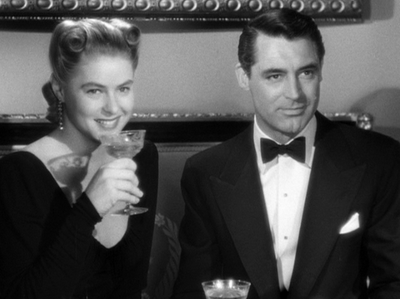
Alicia (Ingrid Bergman) and Dev (Cary Grant) are secret agents assigned to infiltrate a group of Nazis in South America after WW2.
Declaring a shortage of closet space (that’s our girl!), Alicia explores the nooks and crannies of the Sebastian mansion, but finds the wine cellar is off-limits. So, she decides to throw a champagne reception and steal the cellar key from her husband.
She invites Devlin, natch, and the two discover that wine is not the only thing stored in the cellar. (Hitchcock makes his cameo at the shindig, swigging some bubbly.)
Alex realizes the key has been stolen and that his secret is no longer safe, at which point he seeks maternal support. Anna’s fresh out of that, telling him: “We are protected by the enormity of your stupidity, for a time.”
The uranium angle is merely a MacGuffin, Hitchcock argot for a narrative device to advance the plot. The real story is whether Devlin and Alicia can work through their issues, such as his hypocrisy and lack of emotion, her drinking and their mutual game playing, which gets downright cruel. “Our all-too-human capacity for inhumanity is the dark mystery at the heart of ‘Notorious,’ ” writes film scholar William Rothman in his liner notes for the Criterion DVD edition. “And yet, in ‘Notorious,’ the possibility remains alive that the miracle of love can save us from our own perversity.”
This is one of the most beautiful films Hitch ever made, from his gorgeous leads to ravishing cinematography from Ted Tetzlaff – the closeups of Dev and Alicia at the racetrack and the famous crane shot at the mansion before Alicia’s champagne reception are standouts. I also like the imposing silhouettes of Alex and his mother after Alicia susses that they’ve been spiking her coffee. The lighting is magnificent throughout. Using rear-projection, Hitchcock combined footage of the principals filmed on a set with background shots taken in Rio.
The movie clocks in at 102 minutes but it glides by so gracefully that it feels half an hour. Ben Hecht’s sparkling script went through revisions and rewrites with input from Clifford Odets and Hitchcock. (David O. Selznick, on board as producer until he sold his rights to RKO in order to raise cash for another flick, likely tossed ideas around as well. Selznick had eyed Vivien Leigh for the Alicia role.) A few elements of “Notorious” came from a short story by John Taintor Foote called “The Song of the Dragon.”
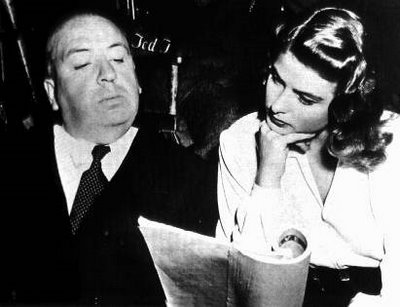
“Ingrid was very fond of my parents,” recalls Pat Hitchcock O’Connell in her book “Alma Hitchcock: The Woman Behind the Man.”
The entire cast dazzles and delights; the subtlety of the performances rewards multiple viewings. Hitch even accepted an idea from Bergman on shooting the dinner party scene.
In her book “Alma Hitchcock: The Woman Behind the Man,” the daughter of Alma and Alfred, Pat Hitchcock O’Connell, recalls that: “Ingrid was very fond of my parents. I remember, she’d finish one film with Daddy and she’d come over, sit on the couch, and say, ‘When do we start the next one?’ ” (Hitchcock O’Connell’s tribute to her mother makes a fun, chatty read and includes some of Alma’s favorite recipes and menus for home entertaining.)
In 1945, Bergman and Hitchcock made “Spellbound” co-starring Gregory Peck and in 1949 Hitch directed her in “Under Capricorn” opposite Joseph Cotten. Also in ’49, Bergman went to Italy to film “Stromboli” with Italian director Roberto Rossellini. Director and star fell in love, and Bergman left her husband Petter Lindstrom for Rossellini. Because of the scandal, Bergman’s reputation in the U.S. suffered, then rebounded; over the course of her career, she earned three Oscars (two for best actress and one for best supporting actress).
One of the most enjoyable and sophisticated films of the black and white era, “Notorious” strikes me as the film noir equivalent of an icy flute of Veuve Clicquot. Cheers!
MGM recently released “Notorious” along with “Rebecca” (1940) and “Spellbound” (1945) on Blu-ray.
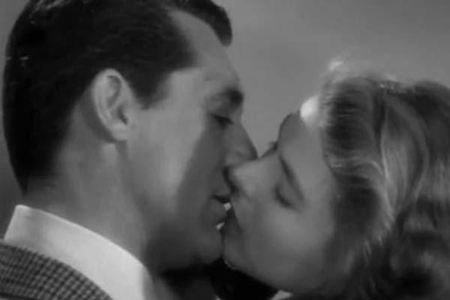
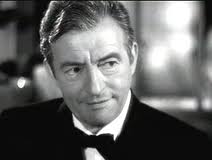
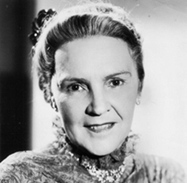





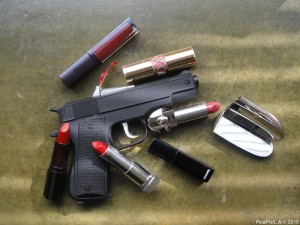
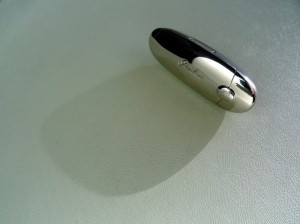





From FNB readers